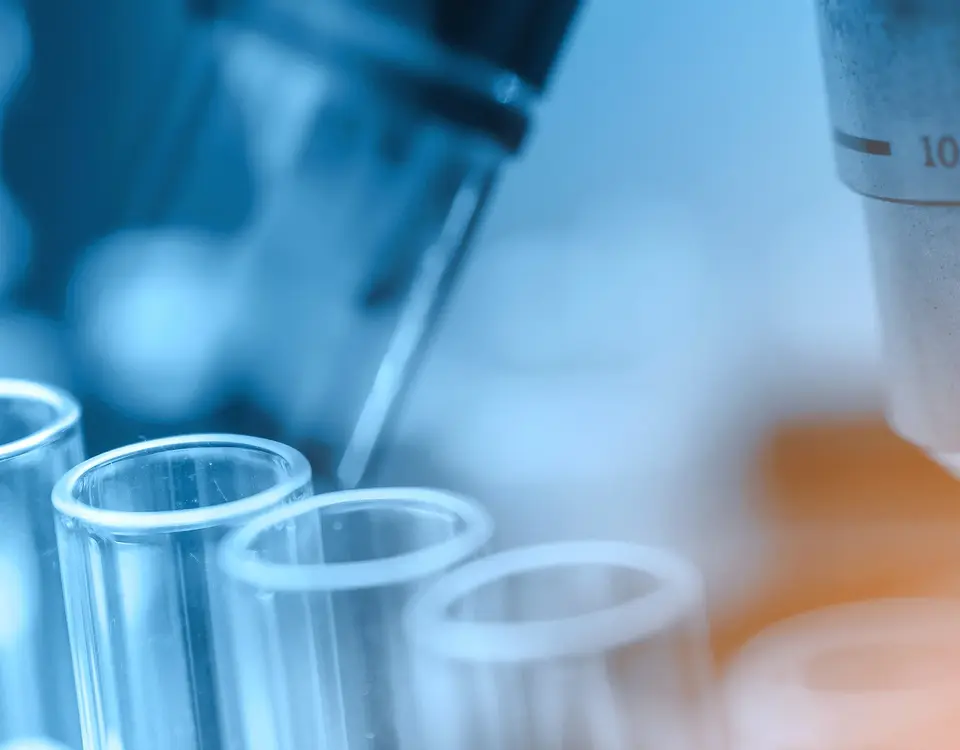About the project
COVIM (COllaboratiVe IMmunity Platform of the NUM) is a nationwide network of leading scientists from the fields of immunology, virology, clinical infectiology, epidemiology and data science. The aim of COVIM is to establish a national platform for the rapid collection and analysis of complex data on immunity to infections, using COVID-19 as an example. This will allow information on the immunity situation against pathogenic threats to be collected ad hoc and new therapeutic and preventive approaches to be developed on this basis. This data enables scientifically based decisions and rapid responses during an outbreak. COVIM is closely interlinked with the other NUM infrastructures and other NUM research projects.
The most important facts at a glance
In the second funding phase, COVIM will establish scalable infrastructures for the rapid collection and analysis of complex data sets on immunity to COVID-19 and future pandemic threats and further expand existing structures and networks. One main focus is on the standardisation and scalability of measurement platforms and the interoperability and availability of immune data. The aim is to provide information on the immunity situation against pathogenic threats in real time wherever possible. This allows for rapid reactions and scientifically based decisions with regard to possible interventions during an outbreak.
The immunity situation is a decisive factor in the course of infection outbreaks and pandemics. The precise assessment of immunity, in particular the degree and duration of immune protection, is complex and requires the involvement of different expertise and resources. While some aspects of the immune response after infections and vaccinations can be measured with routine tests, other components of the immune response can only be investigated in specialised research laboratories. In addition, the evaluation of immunological data is complex and interoperability and standardised analysis across multiple laboratories is a known challenge. Furthermore, the translation of new immunotherapeutic approaches into clinical application usually takes many years. Clinical testing of new interventions for the prevention and treatment of infectious diseases, especially during an outbreak, requires a specialised clinical trial network. However, in the face of a rapidly spreading disease, effective therapeutic and prophylactic measures are needed immediately.
In order to generate detailed and reliable data on population immunity, an infrastructure is being developed that integrates population-based data on seroprevalence and SARS-CoV-2 breakthrough and reinfection. To investigate individual immune responses, we have set up a platform for the standardised testing of recovered and/or vaccinated individuals. The platform coordinates the collection of standardised biosamples. The collected samples are analysed in a central immune analysis platform (Immuno-Analytics-Platform), which develops and maintains a comprehensive portfolio of complementary high-end and high-throughput immunoassays for the precise, standardised determination of pathogen-specific immunity for the community. The immunological data obtained in this way is provided in decentralised data structures and evaluated using federated AI-supported analysis (swarm learning). In addition to the analysis of immunological data, we will continue the living-systematic review of published results. The aim is to make information on protective immunity quickly available and process it in a structured manner. In addition, the COVIM translation platform offers tools and services for the implementation of novel immunotherapeutics for clinical application. For the clinical testing of new interventions, we have established the Network for Immunological-Infectious Clinical Studies (NIKS), a low-threshold platform for the exchange of data and protocols from controlled studies and individual treatment approaches.





